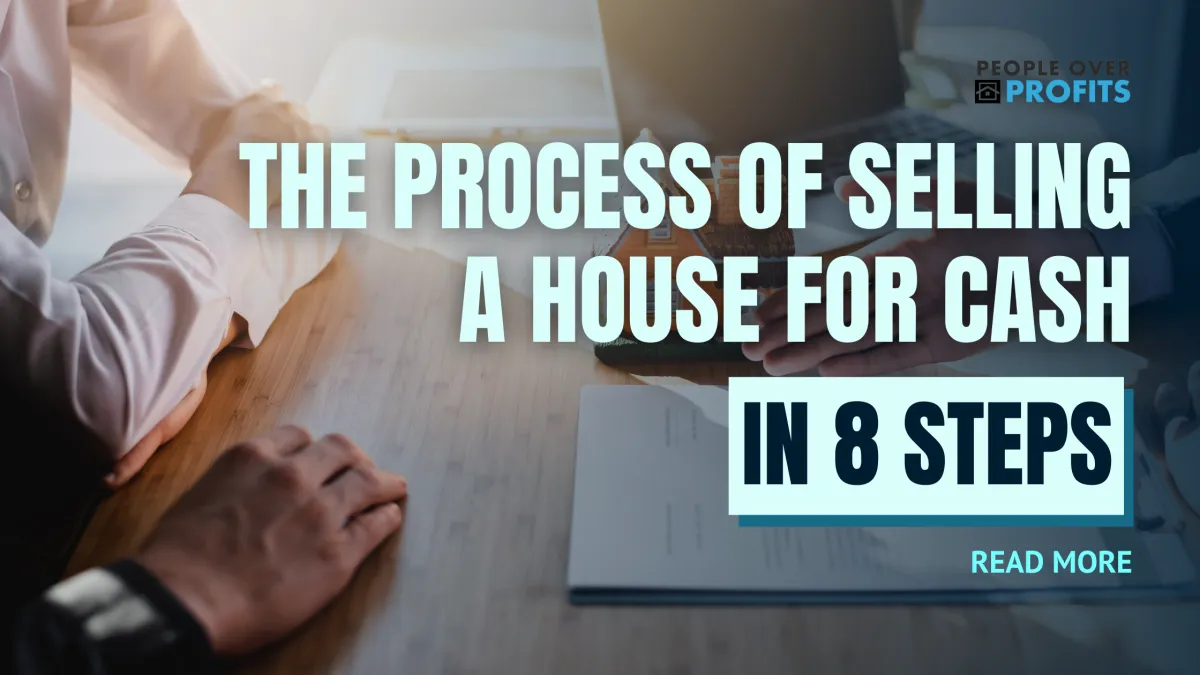Frequently Asked Questions
Maybe you have a few questions. That’s okay; most people do. So here’s a quick collection of some of the questions people ask us… along with our answers. If you still have a question, don’t hesitate to contact us (or give us a call) and we’ll be happy to answer it for you.
Q: How do you determine the price to offer on my house?
A: Great question. We’re not agents, and we don’t list houses. We are professional home buyers: We buy houses Columbia that meet our purchasing criteria. From there we may repair the house and resell it to another homeowner or keep it as a rental ourselves.
Q: Do you pay fair prices for properties?
A: Many of the houses we purchase are below market value (we do this so we can resell it at a profit to another home owner). We are looking to get a fair discount on a property. However, in our experience, many sellers aren’t necessarily expecting a large “windfall” on the property but rather appreciate that we can offer cash, we close very quickly (no waiting for financing), and no time or effort or expense is required on your part of fix up the property or pay agent fees. If that’s what you’re looking for and you see the value in getting your house sold fast… let’s see if we can come to a fair win-win price. (Besides, our no-obligation pricing commitment means that you do not have to move forward with the offer we give… but it’s good to know what we’re offering!)
[DOWNLOAD our free guide that walks you through the Pros and Cons (plus the cost and timeline) of selling your house to a real estate investor… plus learn the pros, cons, and costs of the other two alternatives… listing with an agent or selling it yourself. Head on over here download your free guide →]
Q: How do you determine the price to offer on my house?
A: Great question, and we’re an open book: Our process is very straightforward. We look at the location of the property, what repairs are needed, the current condition of the property, and values of comparable houses sold in the area recently. As you know, house values have taken a huge hit in the last 5 years and most areas still haven’t seen prices come back up. We take many pieces of information into consideration… and come up with a fair price that works for us and works for you too.
Q: Are there any fees or commissions to work with you?
A: This is what makes us stand out from the traditional method of selling your house: There are NO fees or commissions when you sell your house us. We’ll make you an offer, and if it’s a fit then we’ll buy your house (and we’ll often pay for the closing costs too!). No hassle. No fees. We make our money after we pay for repairs on the house (if any) and sell it for a profit (we’re taking all of the risk here on whether we can sell it for a profit or not, once we buy the house from you… the responsibility is ours and you walk away without the burden of the property and it’s payments… and often with cash in your hand).
Q: How are you different from a real estate agent?
A: Real estate agents list properties and hope that someone will buy them. The agent shows the properties to prospective buyers if there are any (the average time to sell a property in many markets right now is 6-12 months) and then take a percentage of the sale price if they find a buyer. Oftentimes, the agent’s commission is 3-6% of the sale price of your house (so if it’s a $100,000 house, you’ll pay between $3,000 – $6,000 in commissions to an agent). Agents provide a great service for those that can wait 6-12 months to sell and who don’t mind giving up some of that sale price to pay for the commissions. But that’s where we’re different: We’re not agents, we’re home buyers. Our company actually buys houses. We don’t list houses. Since we’re actually the one buying the house from you, and we pay with all cash… we can make a decision to buy your house within a couple days (sometimes the same day). Again, we make our living by taking the risk to buy the house with our own cash, repair the house, and market it ourselves to find a buyer (which is the hard part in this market).
Q: Is there any obligation when I submit my info?
A: There is absolutely zero obligation for you. Once you tell us a bit about your property, we’ll take a look at things, maybe set up a call with you to find out a bit more, and make you an all-cash offer that’s fair for you and fair for us. From there, it’s 100% your decision on whether or not you’d like to sell your house to us… and we won’t hassle you, won’t harass you… it’s 100% your decision and we’ll let you decide what’s right for you.
Want To See What We Can Buy Your House For?
Fill Out The Quick Form Below To Get A No-Hassle
No-Obligation All-Cash Offer
Listing vs. Selling To Us
Which route is quicker?
Which route is quicker?
Puts more cash in your pocket?
Has less hassle?
We buy houses in ANY CONDITION. There are no commissions or fees and no obligation whatsoever. Start below by giving us a bit of information about your property or call!
(803) 998-CASH
We respect your privacy. See our Privacy Policy.

The Process Of Selling A House For Cash, In 8 Steps
Introduction
Real estate market of 2023, sellers are increasingly drawn to the quickest route to a sale: cash transactions. The charm of a cash sale lies in its simplicity, speed, and certainty. Here, we dig into an exhaustive step-by-step guide detailing how to navigate this process, ensuring a smooth, advantageous transaction for your property.

1. Comprehensive Self-Evaluation and Decision Making
Before plunging into the cash selling process, it's critical to perform an exhaustive self-assessment. This involves a candid evaluation of your motivations for selling, the urgency of the sale, financial implications, and potential emotional repercussions. Are you facing a relocation, financial hardship, or simply seizing an opportunistic moment? Understanding your unique circumstances and objectives will guide your strategy.
Additionally, familiarize yourself with your local real estate market. Research recent sales data, understand the demand dynamics, and identify the cash buying competition in your locale. This foundational knowledge is instrumental in setting realistic expectations and preparing for subsequent negotiations.
2. In-Depth Property Assessment and Preparation
Your property's condition significantly influences the appeal to potential cash buyers. Begin with a thorough assessment, preferably with a professional home inspector, to uncover any issues needing attention.
When it comes to cash sales, one significant advantage is that properties are typically sold "as is." This means that the buyer purchases the property in its current condition, without any repairs or renovations being made by the seller. This can be highly beneficial for several reasons.
Firstly, buying a property "as is" can save a considerable amount of time. In traditional sales, negotiations often involve requests for repairs or improvements to be made before the sale is finalized. This process can be time-consuming, as it requires inspections, estimates, and negotiations between the buyer and seller. However, with cash sales, the buyer accepts the property in its current state, eliminating the need for these negotiations and potentially expediting the sale process.
Purchasing a property "as is" can save money on repairs. In traditional sales, buyers often request repairs to be made by the seller as a condition of the sale. These repairs can range from minor cosmetic fixes to major structural issues.
However, when buying a property for cash, the buyer assumes responsibility for any necessary repairs or renovations. This allows the buyer to have full control over the repairs and choose the most cost-effective options. By taking on the repairs themselves, cash buyers can potentially save money by avoiding inflated repair costs that sellers may charge.
Buying a property "as is" can provide an opportunity for buyers to customize the property to their own preferences. Instead of relying on the seller's taste or choices for repairs, cash buyers have the freedom to make the necessary improvements according to their own vision. This can be particularly appealing for buyers who are looking to personalize their new property or investors who plan to renovate and resell the property for a profit.
It is important to note that purchasing a property "as is" also comes with its own set of risks. Buyers must thoroughly inspect the property and assess any potential issues before making a cash offer. Without the option to negotiate repairs, buyers must be prepared to handle any unexpected expenses that may arise after the purchase. Therefore, it is crucial for cash buyers to conduct thorough due diligence and consider hiring professional inspectors to ensure they are making an informed decision.
The advantage of cash sales lies in the ability to purchase properties "as is." This can save time by eliminating negotiations for repairs and provide an opportunity for buyers to customize the property to their liking. However, buyers must also be cautious and conduct proper inspections to mitigate any potential risks associated with buying a property in its current condition.
Next, declutter your space and perform basic maintenance to enhance your property's appeal. Although significant renovations aren't necessary, simple curb appeal improvements can make a big difference.
3. Setting an Optimal Price Point
Pricing your property appropriately is a delicate balancing act. Set the price too high, and you scare off potential buyers; too low, and you leave money on the table. Analyze local comps, consider your home's unique features and condition, and perhaps even seek a professional appraisal for an unbiased opinion.
Remember, cash buyers typically seek deals, but that doesn't mean you should undervalue your property. Be prepared to defend your price with facts and data during negotiations.
4. Casting a Wide Net for Cash Buyers
Locating the right cash buyers is pivotal. These buyers range from real estate investors and house flipping companies to individuals preferring straightforward transactions. Utilize multiple strategies to attract a diverse pool:
Online real estate platforms and forums
Local real estate investor groups
Direct mail campaigns targeting cash buyers
"For Sale By Owner" (FSBO) listings
Professional real estate networks
The goal is to create competitive tension among interested buyers, potentially driving up your property's final sale price.
5. Scrutinizing Offers and Buyers
Once offers start coming in, due diligence on each potential buyer is crucial. Verify proof of funds to confirm they can follow through on the offer. Scrutinize each bid, considering not only the price but also the terms. A lower offer with fewer contingencies or a quicker close might be more appealing than a higher offer with more complicated terms.
During this phase, trust your instincts and legal advice. If something feels off about a buyer or an offer, it's worth digging deeper to avoid potential scams.
6. Mastering the Art of Negotiation
Negotiations are the heart of any real estate transaction. Armed with your research and understanding of your property's worth, enter negotiations with confidence. Communicate clearly, stand firm on your justified demands, but also recognize the points where compromise may be necessary. Keep in mind, the objective is a mutually beneficial outcome.
Document everything, and make sure all agreements are in writing. An attorney experienced in real estate transactions can be invaluable during this process.
7. Navigating the Contract and Escrow
With a successful negotiation, you'll enter into a contract that outlines the specifics of the sale. This document should detail every aspect of the agreement, including the sale price, the condition of the property, timelines, and any other contingencies.
An escrow company will then handle the transaction, ensuring all contractual terms are met before any money changes hands. They act as a neutral third party to protect the interests of both the buyer and seller.
8. Finalizing the Sale
The final step involves closing the sale. You'll need to settle any remaining financial obligations related to the property, such as mortgages or homeowner's association fees, and ensure all necessary paperwork is completed. Once everything is in order, the escrow company will transfer the property's title to the buyer, and you'll receive your cash.
During the closing process, legal assistance plays a crucial role in ensuring that all necessary paperwork is properly completed and all legal requirements are met. This stage of the transaction is a critical step in finalizing the sale or purchase of a property, and it is essential to have a legal professional involved to ensure a smooth and legally compliant closing.
One of the primary responsibilities of legal assistance during the closing process is to review and prepare all the necessary documents. This includes drafting or reviewing the purchase agreement, title documents, and any other legal contracts or agreements involved in the transaction. They will carefully examine these documents to ensure that they accurately reflect the terms and conditions agreed upon by both parties and that they comply with all applicable laws and regulations.
Additionally, legal assistance will conduct a thorough title search to verify the ownership of the property and identify any potential liens or encumbrances that may affect the transaction. This is crucial to protect the buyer from any unforeseen legal issues or financial liabilities associated with the property.
Legal professionals will coordinate with other parties involved in the closing process, such as lenders, real estate agents, and title companies, to ensure that all necessary information and documentation are obtained and properly executed. They will also facilitate communication between all parties to address any concerns or questions that may arise during the closing process.
Another important aspect of legal assistance during the closing process is the review and explanation of all closing documents to the buyer or seller. This includes going through the settlement statement, loan documents, and any other legal paperwork involved in the transaction. The legal professional will ensure that the buyer or seller understands the terms and conditions outlined in these documents and that they are aware of their rights and obligations.
Legal assistance will oversee the actual closing meeting, where all parties involved in the transaction come together to sign the necessary documents and complete the transfer of ownership. They will ensure that all signatures are properly obtained, and all necessary funds are disbursed according to the agreed-upon terms.
In summary, legal assistance is paramount during the closing process to ensure that all paperwork is in order, all legal requirements are satisfied, and the transaction is completed smoothly and legally. Their expertise and attention to detail help protect the interests of both buyers and sellers and provide peace of mind throughout the closing process.
Conclusion
Selling a house for cash can be a streamlined, efficient process, particularly appealing for those seeking a swift transaction. However, it requires thorough preparation, an understanding of the property's value, savvy negotiation skills, and keen attention to detail. By following these eight comprehensive steps, sellers can navigate the journey, making informed decisions that lead to a successful, expedient sale in 2023's dynamic real estate market.
We buy houses in ANY CONDITION. There are no commissions or fees and no obligation whatsoever. Start below by giving us a bit of information about your property or call!
(803) 998-CASH
We respect your privacy. See our Privacy Policy.
4 fast and easy steps to sell your home for cash today.
Learn The Pros and Cons Of Selling Your House To Local
Professional Home Buyer– FREE Guide:

Download our FREE Guide here.
Or, you can always feel free to Contact us anytime if you have questions, want a no hassle Situation Evaluation, or want to just learn more about how we can help homeowners sell unwanted properties for cash.
Get the FREE Guide and then give us a call at 803-770-0679 and we’ll discuss what your home is worth and what we can offer to buy it for with our Cash Offer Program.
Cash Property Offers - All Rights Reserved | Privacy Policy | Terms of Use
Powered by ClientPro.ai
Sell My House Fast in Columbia SC
Sell my house fast in Greenville SC
Sell My House Fast Las Vegas Nevada
Sell My House Fast in Spartanburg SC
Sell My House Fast in Charlotte NC
Sell My House Fast in Fayetteville SC
Sell My House Fast in Lancaster SC
Sell My House Fast in Rock Hill SC
Sell My House Jacksonville
Sell My House Fast in Columbus GA
Sell my house fast Augusta GA
Sell my house fast Little Rock AR
Sell My House Fast in Canton OH
Sell My House Fast in Columbus GA
Sell My House Fast in Atlanta GA
Sell My House Fast in Columbia SC
Sell my house fast in Greenville SC
Sell My House Fast Las Vegas Nevada
Sell My House Fast in Spartanburg SC
Sell My House Fast in Charlotte NC
Sell My House Fast in Fayetteville SC
Sell My House Fast in Lancaster SC
Sell My House Fast in Rock Hill SC
Sell My House Jacksonville
Sell My House Fast in Columbus GA
Sell my house fast Augusta GA
Sell my house fast Little Rock AR
Sell My House Fast in Canton OH
Sell My House Fast in Columbus GA
Sell My House Fast in Atlanta GA






